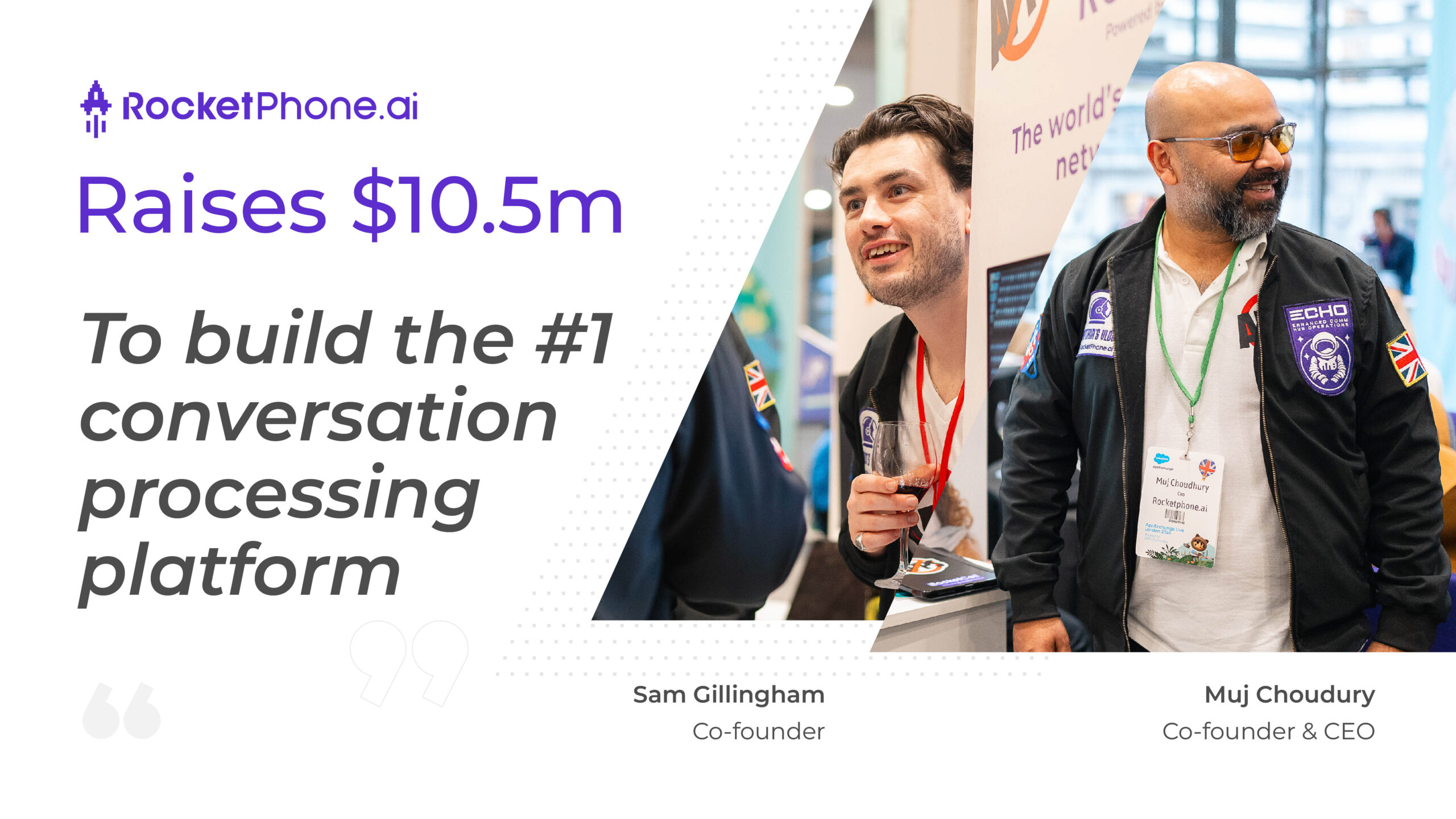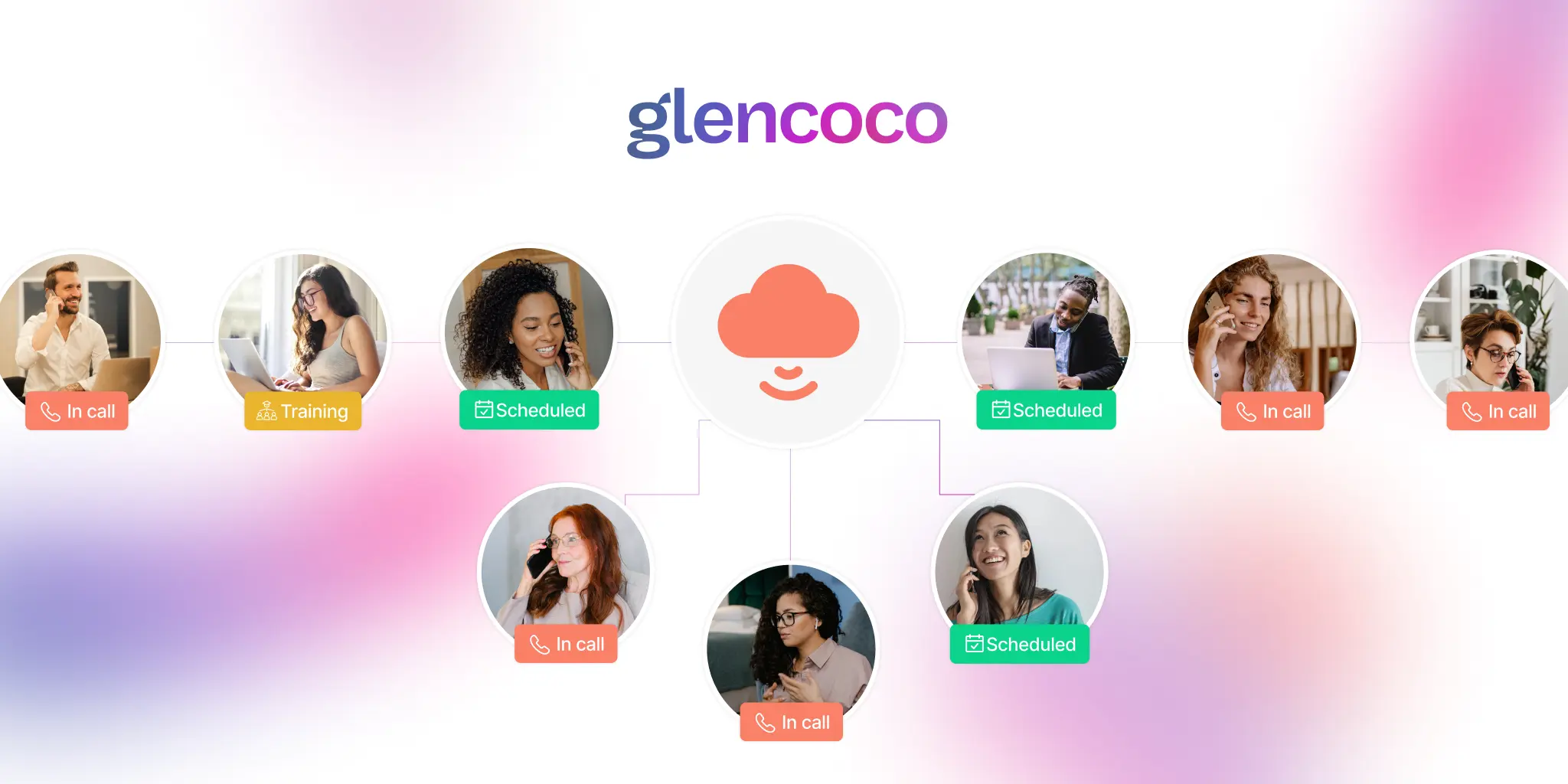It’s 4:30 PM on a Thursday afternoon, and Sarah, a seasoned sales development representative, is staring at her screen in frustration. She’s made 127 calls today, connected with just 8 prospects, and closed zero deals. The manual dialing, the endless voicemails, the busy signals, it’s really a soul-crushing routine that’s become all too familiar in modern sales organizations.
But here’s what’s remarkable: Sarah’s counterpart at a competing company made the same number of meaningful conversations in half the time, using 70% less effort, and generated 3x more qualified opportunities. The difference iwasn’t talent, persistence, or luck, rather it was the strategic implementation of AI sales tools, particularly AI Dialers. These smart dialing systems have transformed how sales teams approach both outbound and inbound calling, replacing manual effort with speed, precision, and intelligent automation.
Welcome to the era of intelligent sales automation, where artificial intelligence isn’t just augmenting human capabilities, but fundamentally reshaping how we think about phone-based selling. What once started as simple auto-dialers has now evolved into sophisticated conversation intelligence platforms that can predict the best times to call, automatically navigate phone trees, analyze conversation sentiment in real time, and even suggest optimal talking points during live calls.
At the core of this shift are AI dialers, smart systems that blend predictive analytics, parallel dialing, and conversation intelligence to squeeze more value out of every minute a rep spends on the phone. Today’s AI-powered dialers can launch multiple calls at once, drop personalized voicemails automatically, route prospects based on behavior, and even coach reps live during conversations.
The results speak for themselves: companies using AI dialers see connect rates jump 3–4x, dial times cut in half, and qualified opportunities rise by up to 60%. Most importantly, they give sales teams back their scarcest resource—time—to focus on relationships, strategy, and closing deals instead of grinding through endless dials.
Key Takeaways
- AI dialers improve connect rates by 300-400% compared to traditional manual dialing methods
- Parallel dialing technology eliminates 60-70% of dead time between calls, dramatically increasing rep productivity
- Conversation intelligence provides real-time coaching, sentiment analysis, and automated call transcription
- Organizations see positive ROI within 60-90 days of proper implementation with full training
- Leading platforms include Outplay, CloudTalk, JustCall, Koncert, Apollo Dialer, and Reply for different use cases
- Pricing ranges from $19-$149 per user per month depending on features, team size, and capabilities
- CRM integration is critical for seamless data synchronization and workflow automation
- Predictive analytics optimize calling times by analyzing millions of data points to determine when prospects are most likely to answer
- Compliance features handle TCPA and GDPR requirements automatically with built-in do-not-call list management
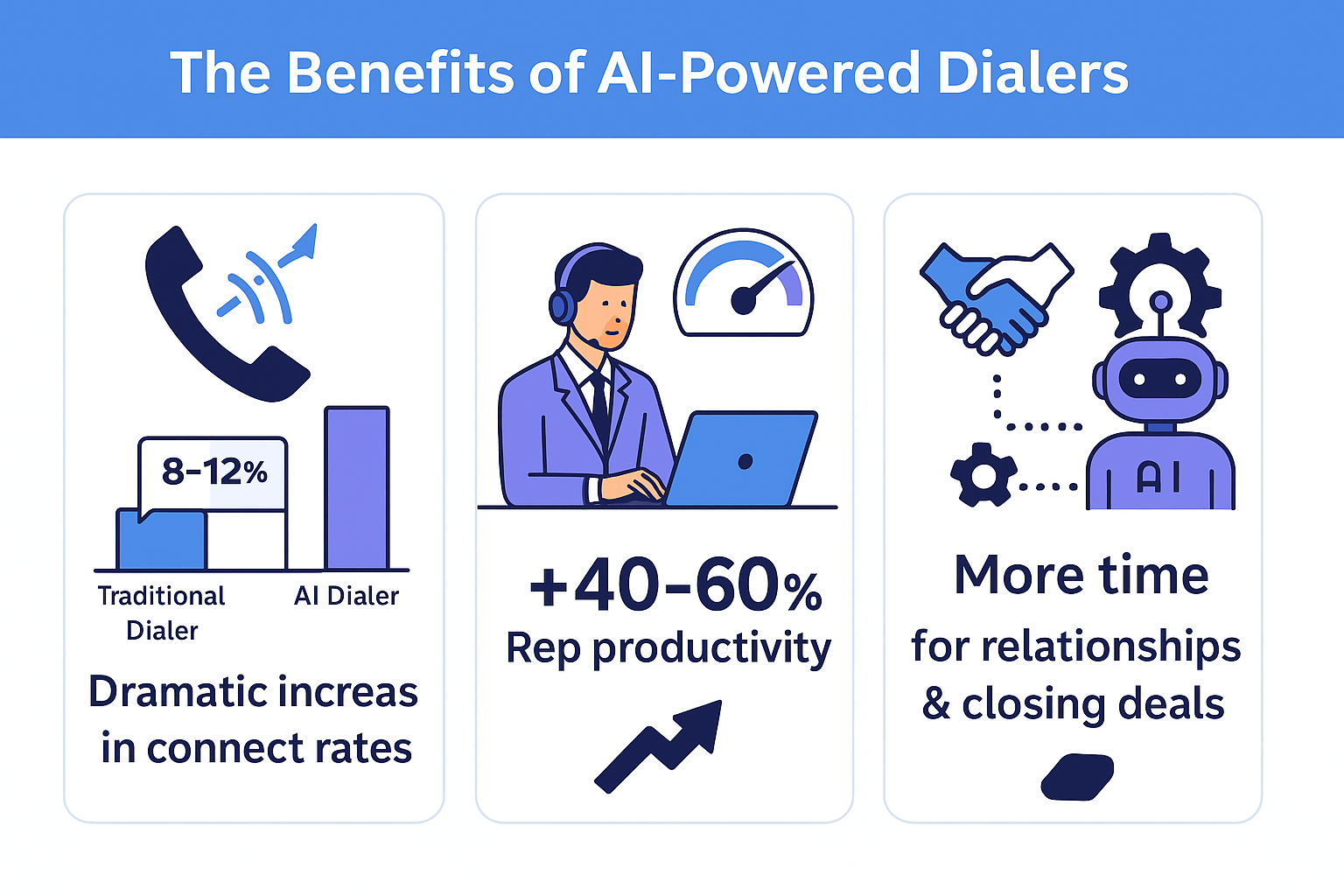 How AI Dialers Drive Modern Revenue Generation
How AI Dialers Drive Modern Revenue Generation
AI dialers sit at the crossroads of artificial intelligence, telecom innovation, and modern sales strategy. Instead of just automating dials, these systems use machine learning to optimize every stage of the sales process, from timing the first outreach to guiding live conversations and automating follow-ups with precision.
The real leap from legacy dialers to AI-powered systems is adaptability. Traditional dialers run on rigid rules, while AI dialers learn and evolve in real time. By analyzing call patterns, prospect behavior, and conversation outcomes, they continuously refine performance, helping revenue teams connect faster, convert smarter, and scale growth like never before.
Predictive Dialing Intelligence forms the foundation of most AI phone dialers. These systems use historical calling data, time-zone information, industry patterns, and individual prospect behavior to predict the optimal times to reach specific contacts. Advanced algorithms consider factors like previous call outcomes, email engagement patterns, social media activity, and even external data sources like company funding announcements or leadership changes to score and prioritize calling lists.
Parallel Dialing Technology represents another crucial capability, allowing systems to simultaneously dial multiple numbers and connect reps only when live prospects answer. This eliminates the dead time between calls that traditionally consumed 60-70% of a rep’s dialing time. Modern parallel dialing systems can intelligently manage multiple simultaneous connections, automatically handle voicemails, and seamlessly route answered calls to available representatives.
Conversation Intelligence has emerged as perhaps the most transformative aspect of AI phone dialing tools. These systems use natural language processing to analyze call recordings, identify key conversation moments, track competitor mentions, assess sentiment, and provide real-time coaching suggestions. Some platforms can even detect when a prospect is losing interest and suggest specific talking points or value propositions to re-engage them.
Intelligent Call Routing ensures that answered calls reach the most appropriate sales representative based on factors like prospect profile, previous interaction history, rep expertise, and current workload. Advanced systems can even route calls based on conversation sentiment analysis, ensuring that warm prospects connect with top-performing closers while qualifying calls go to appropriate SDRs.
 The benefits of implementing AI-powered dialers extend far beyond simple productivity improvements. Organizations report dramatic increases in connect rates, with some seeing improvements from 2-3% to 8-12% simply by optimizing call timing and approach. Rep productivity typically increases by 40-60% as AI handles the mechanical aspects of dialing and data entry, allowing humans to focus on relationship building and deal progression.
The benefits of implementing AI-powered dialers extend far beyond simple productivity improvements. Organizations report dramatic increases in connect rates, with some seeing improvements from 2-3% to 8-12% simply by optimizing call timing and approach. Rep productivity typically increases by 40-60% as AI handles the mechanical aspects of dialing and data entry, allowing humans to focus on relationship building and deal progression.
More importantly, AI phone dialing tools provide unprecedented visibility into calling performance and prospect engagement. Detailed analytics reveal which calling strategies work best for different prospect segments, optimal timing patterns, and conversation themes that correlate with closed deals. This data enables continuous optimization of calling strategies and provides concrete ROI metrics for sales activities.
You May Also Like: Best AI Voice Agents For Seamless Conversations
What to Look for in the Best AI Dialers
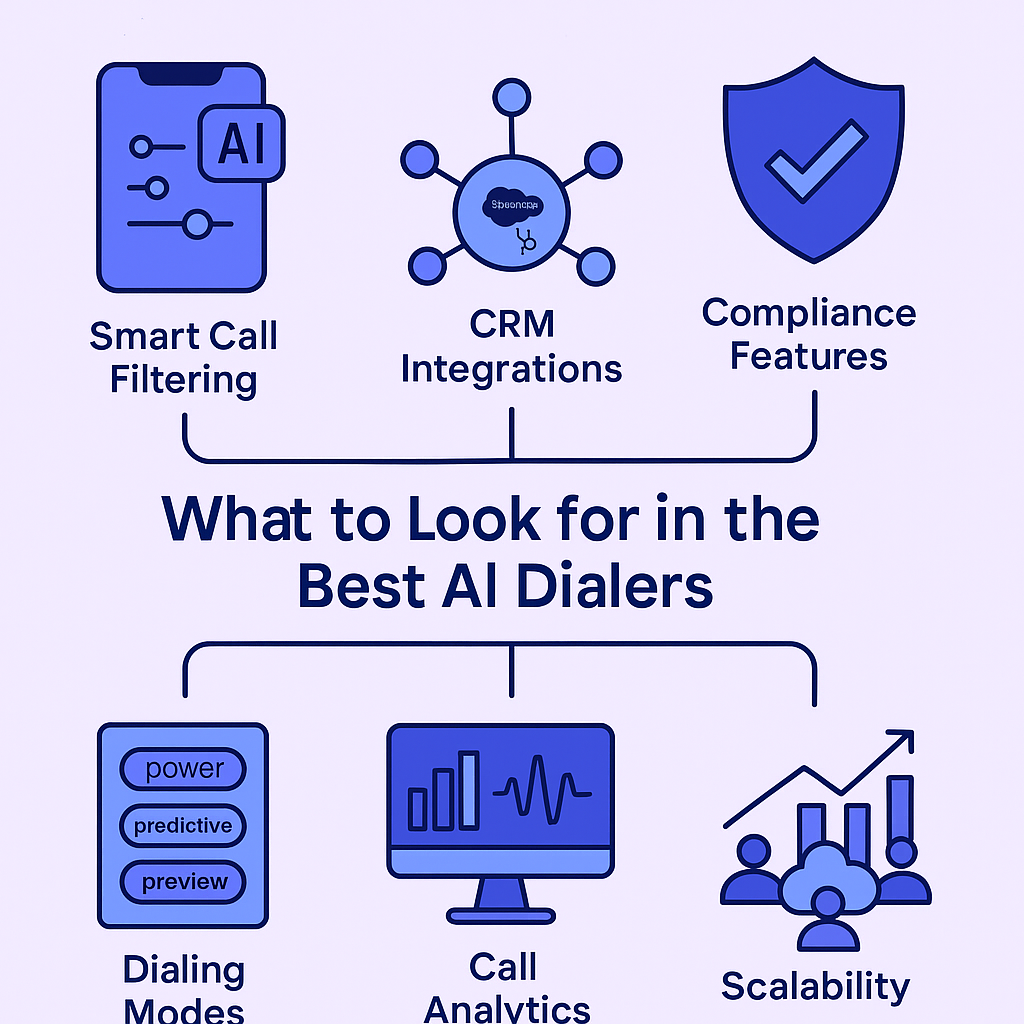 Before choosing the right platform, you need to explore what to look for in the best AI dialers. Not all dialers are created equal. The best AI dialers go beyond simple automation to deliver smarter, faster, and more compliant sales workflows. Here’s what separates top-tier AI dialers from those that just add more noise to your day:
Before choosing the right platform, you need to explore what to look for in the best AI dialers. Not all dialers are created equal. The best AI dialers go beyond simple automation to deliver smarter, faster, and more compliant sales workflows. Here’s what separates top-tier AI dialers from those that just add more noise to your day:
1. Smart Call Filtering and Live Call Detection
A dialer should save time, not waste it. The best AI dialers automatically detect and filter out voicemails, busy signals, and disconnected numbers, so reps only connect with real prospects. Advanced platforms even use AI-powered voice recognition to distinguish between a human answer and an answering machine, dramatically reducing wasted dials.
2. Seamless Business Tool Integrations
A dialer is only as effective as the data it runs on. Look for solutions that sync seamlessly with CRMs like Salesforce, HubSpot, or Zoho. This ensures call details are logged automatically, lead statuses are updated instantly, and follow-ups can be triggered without manual effort—keeping reps focused on selling, not admin.
3. Strong Compliance Features
Compliance is non-negotiable. Leading AI dialers come with built-in safeguards like automatic Do Not Call (DNC) list scrubbing, call recording disclosures, and consent management to keep teams legally protected. Some even go further with real-time fraud detection to prevent calls to numbers flagged for spam.
4. Intelligent Dialing Modes
Every sales team has different needs, so flexibility matters. The best AI dialers provide multiple dialing options—power, predictive, and preview—so teams can adjust based on their outreach strategy.
5. Call Analytics and Reporting
Data-driven sales teams thrive with actionable insights. Advanced AI dialers provide detailed analytics such as talk time, connection rates, and conversation outcomes. Many also include AI-powered transcription and sentiment analysis, enabling managers to refine scripts and improve conversion rates.
6. Scalability for High-Volume Calling
If a dialer slows down under heavy loads, it’s not built for serious sales teams. The best AI dialers are designed to handle thousands of calls simultaneously without lag, ensuring consistent performance even at scale.
These features aren’t “nice-to-haves”, they’re essential. When evaluating the best AI dialers, prioritize tools that combine speed, intelligence, compliance, and scalability to maximize both efficiency and results.
Best AI Dialers For Effective Sales Cold Calling
Looking for the best AI dialer software to make cold calling more effective? We’ve reviewed [X] top AI dialer tools for sales teams that go far beyond basic auto-dialing. These platforms include CloudTalk, JustCall, Koncert, and 2XConnect, a smart parallel dialer built to maximize live conversations and minimize wasted time.
They help businesses boost connect rates, reduce wasted calls, and spend more time engaging with real prospects. With features like smart call filtering, live call detection, seamless CRM integrations, and real-time analytics, the right AI dialer can increase contact rates by up to 300%, cut idle time by 50%, and transform cold calling into productive conversations that generate more revenue.
Cloud Phone Systems & Enterprise Solutions
1. CloudTalk: AI-Powered Cloud Communications for Scale

CloudTalk has positioned itself as the enterprise-grade solution for teams that need sophisticated calling capabilities combined with comprehensive customer communication management. What sets CloudTalk apart in the AI phone dialing space is its focus on intelligent call routing and real-time performance optimization.
The platform’s AI-driven predictive dialing system analyzes historical calling data to determine optimal contact times for individual prospects, automatically adjusting calling schedules based on prospect behavior patterns and response rates. CloudTalk’s parallel dialing capability allows sales reps to simultaneously dial up to 5 numbers, dramatically reducing wait time between conversations and increasing overall calling efficiency.
CloudTalk’s conversation intelligence features include real-time sentiment analysis, automatic call transcription, and AI-powered coaching suggestions that appear during live calls. The system can detect when prospects mention competitors, express objections, or show buying signals, providing reps with contextual prompts to keep conversations on track.
The platform integrates seamlessly with major CRM systems including Salesforce, HubSpot, and Pipedrive, automatically syncing call outcomes, updating contact records, and triggering follow-up sequences. CloudTalk’s advanced analytics dashboard provides detailed insights into calling performance, including connect rates by time of day, conversation duration patterns, and rep-specific performance metrics.
Particularly impressive is CloudTalk’s compliance management system, which automatically handles TCPA requirements, maintains do-not-call lists, and provides detailed audit trails for regulatory compliance. For organizations operating in multiple markets, the platform supports international dialing with local presence numbers in over 160 countries.
Key Features of CloudTalk
- AI-Powered Predictive Dialing: Analyzes historical data to identify optimal contact times and adjusts call schedules dynamically.
- Parallel Dialing: Allows sales reps to call up to 5 numbers simultaneously, maximizing live conversation efficiency.
- Real-Time Conversation Intelligence: Offers live sentiment analysis, auto-transcription, and AI-based coaching prompts during calls.
- Seamless CRM Integrations: Works smoothly with Salesforce, HubSpot, and Pipedrive for automated data syncing and workflow updates.
- Advanced Analytics Dashboard: Tracks connect rates, call durations, and rep performance with actionable insights.
- Compliance Management: Automates TCPA compliance, maintains do-not-call lists, and provides audit-ready call logs.
2. JustCall: Intelligence-Driven Sales Conversations
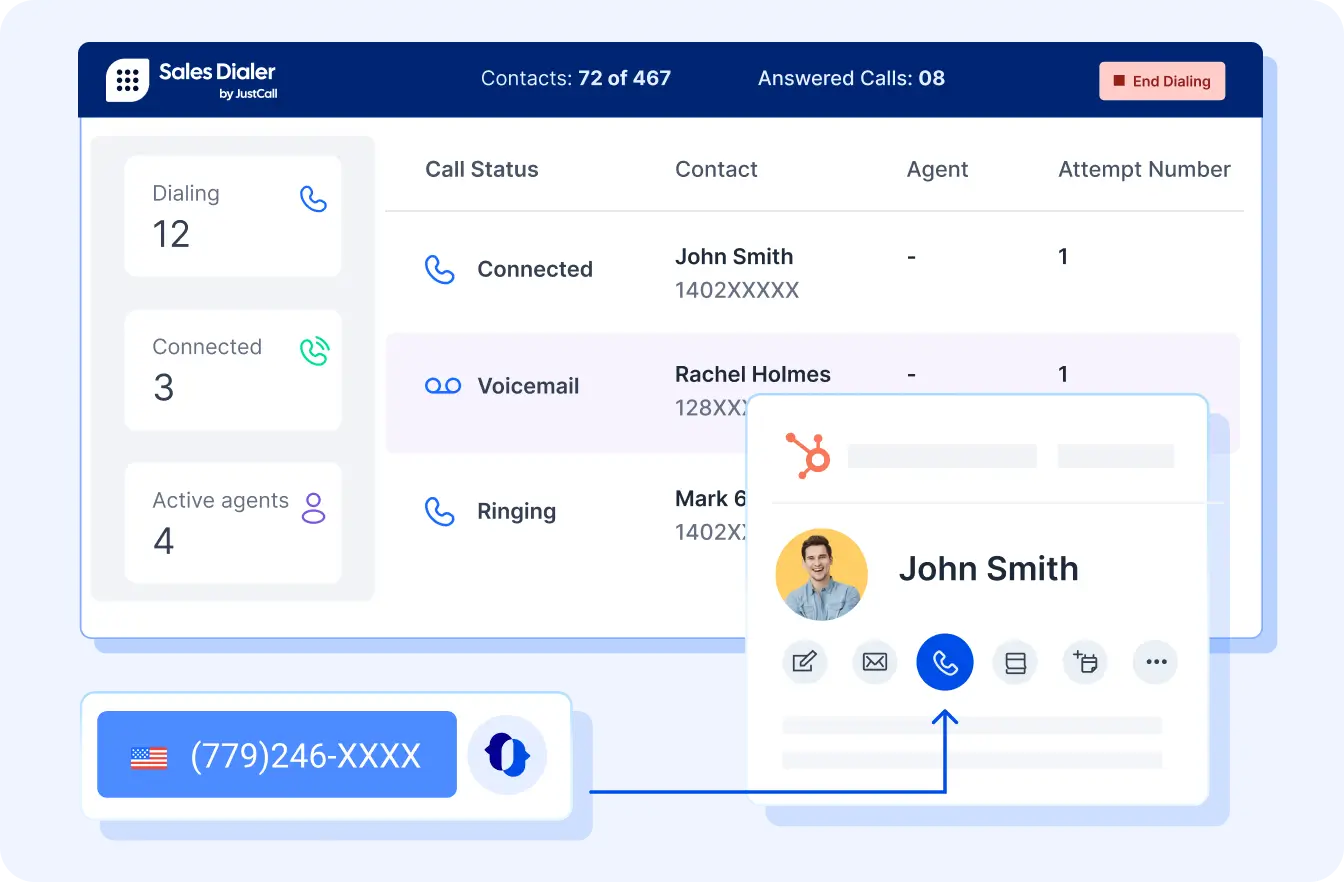
JustCall has built its reputation on delivering sophisticated calling automation combined with powerful conversation analytics. The platform’s AI phone dialing capabilities focus heavily on optimizing conversation outcomes rather than just increasing dial volume.
JustCall’s intelligent power dialing system uses machine learning algorithms to analyze prospect engagement patterns and automatically adjust calling strategies. The system can detect optimal calling windows for different prospect segments and automatically schedule callbacks when prospects are most likely to be available and receptive.
The platform’s standout feature is its advanced conversation intelligence platform, which provides real-time transcription, sentiment analysis, and automated call scoring. JustCall’s AI can identify key conversation moments, track competitive mentions, and even detect when prospects are ready to move forward in the sales process. This information is immediately surfaced to sales reps and managers, enabling more informed follow-up strategies.
JustCall’s parallel dialing technology allows reps to dial multiple numbers simultaneously while maintaining personalized messaging for each prospect. The system automatically handles voicemails, busy signals, and disconnected numbers, ensuring reps only spend time on live conversations.
Integration capabilities include deep connections with Salesforce, HubSpot, Pipedrive, and dozens of other sales and marketing platforms. JustCall automatically syncs all calling activity, updates CRM records, and can trigger automated email sequences based on call outcomes. The platform’s API allows for custom integrations with proprietary sales systems.
Key Features of JustCall
- Intelligent Power Dialing: Uses machine learning to analyze prospect engagement patterns and automatically adjust calling strategies for maximum response rates.
- Optimized Callback Scheduling: Detects optimal calling windows for each segment and schedules callbacks when prospects are most likely to answer.
- Advanced Conversation Intelligence: Provides real-time transcription, sentiment analysis, and AI-driven call scoring to identify key conversation moments and intent signals.
- Competitive & Intent Detection: Recognizes competitor mentions, objections, and buying signals to help sales reps tailor responses instantly.
- Parallel Dialing with Personalization: Dials multiple numbers simultaneously while preserving personalized messaging; automatically handles voicemails, busy lines, and disconnected calls.
- CRM & Workflow Integrations: Seamlessly integrates with Salesforce, HubSpot, Pipedrive, and other CRMs to auto-sync call data, update records, and trigger automated follow-ups.
- Custom API Integrations: Offers robust API access for connecting with proprietary tools and building custom workflows.
Parallel Dialing Solutions
3. 2XConnect: Smart Parallel Dialer
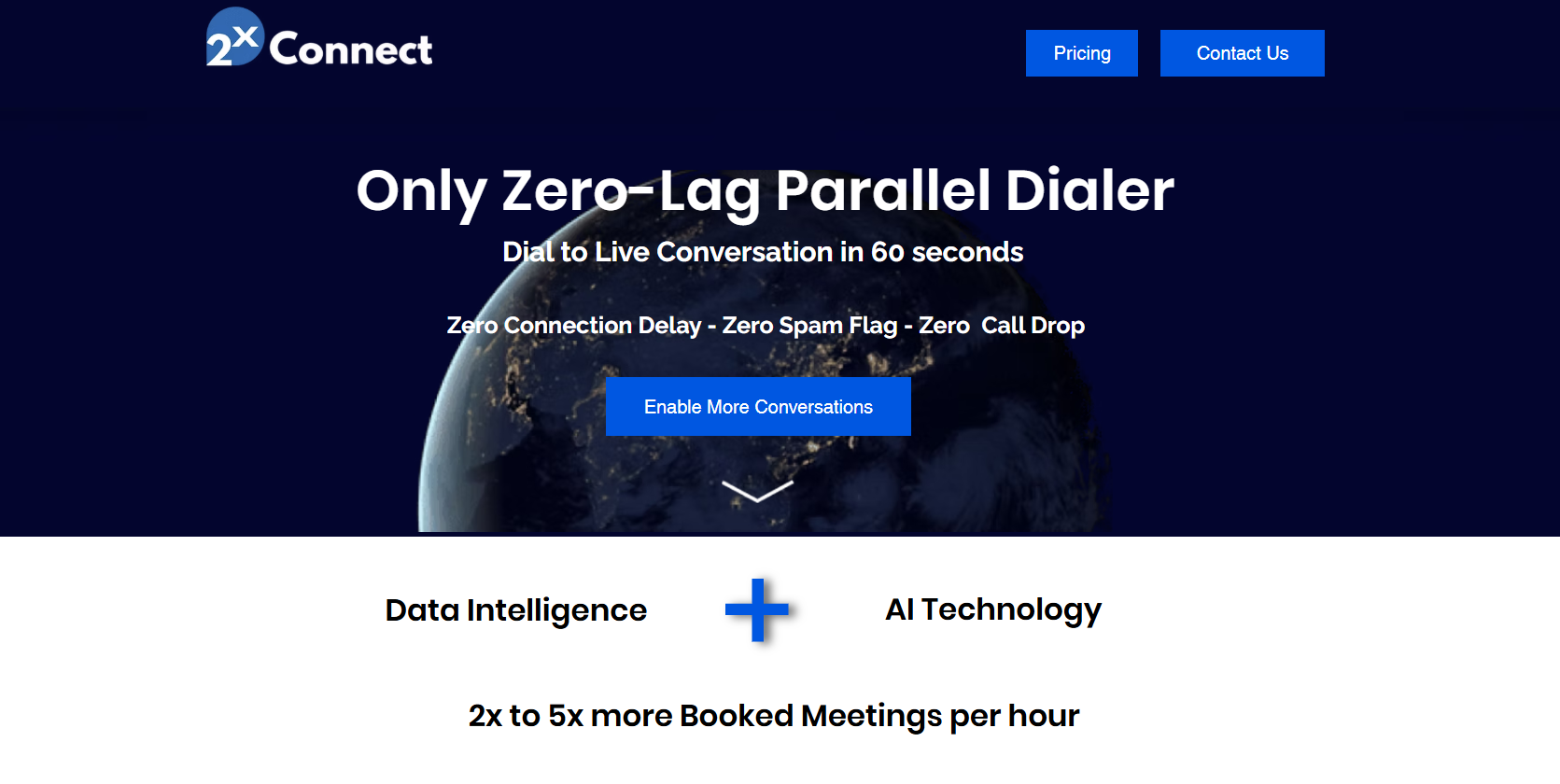 2XConnect.io is an AI-powered parallel dialer, built to maximize live B2B sales conversations for outbound sales teams. Unlike traditional dialers that average 1–2 live conversations per hour, 2XConnect.io delivers 8–12 live connects per hour (and up to 20+ in practice) by leveraging advanced AI and data intelligence to skip wasted dials and prioritize only live prospects.
2XConnect.io is an AI-powered parallel dialer, built to maximize live B2B sales conversations for outbound sales teams. Unlike traditional dialers that average 1–2 live conversations per hour, 2XConnect.io delivers 8–12 live connects per hour (and up to 20+ in practice) by leveraging advanced AI and data intelligence to skip wasted dials and prioritize only live prospects.
It is designed for lean sales teams, agencies, and high-volume B2B outbound campaigns, offering a balance of simplicity, affordability, and performance.
What is a Parallel Dialer?
A parallel dialer is a sales dialing solution that enables reps to call multiple prospects simultaneously, unlike click-to-call dialers that place calls one by one. This dramatically increases connection opportunities, reduces idle time, and ensures sales reps spend their time having live conversations rather than waiting for calls to connect.
For outbound sales teams managing large prospect lists or high call volumes, parallel dialers are essential for scaling outreach, improving connect rates, and maximizing productivity.
Why Parallel Dialers Matter for Sales Teams
Traditional click-to-call systems limit SDRs to 30–40 calls per hour, with most of that time wasted on unanswered calls or voicemails. A parallel dialer solves this problem by:
Increasing Outreach Volume
- Makes 250–350 calls per hour, boosting the number of prospects reached in less time.
Reducing Idle Time
- Eliminates delays caused by unanswered calls, voicemails, or IVR menus, allowing SDRs to spend more time in real conversations.
Supporting Large-Scale Campaigns
- Ideal for teams targeting large addressable markets, high-volume outreach, or homogeneous prospect lists.
Enabling Consistent Messaging
- Helps SDRs deliver structured pitches across multiple calls while maintaining quality and focus.
Empowering Experienced SDRs
- Suited for skilled reps who can adapt quickly, use tailored talk tracks, and manage high call activity effectively.
Key Features of 2XConnect.io
AI & Data Intelligence
- Filters invalid numbers, automates IVR navigation, and skips voicemails.
- Ensures reps only connect with live prospects.
High-Volume Parallel Dialing
- 250–350 dials/hour with safeguards against repeated attempts to the same number.
- Delivers 8–12 live conversations per hour, drastically higher than standard dialers.
Instant Connections
- Transfers live calls to reps with zero lag.
- Ensures smooth, uninterrupted prospect engagement.
CRM Integration
-
- Seamlessly syncs with major CRMs for better campaign tracking and reporting.
Simple Dashboard
- Launch campaigns in just a few clicks.
- Minimal learning curve for rapid adoption.
Caller ID Protection
-
- Rotates and monitors local Caller IDs to reduce “spam” labeling.
Affordable & Flexible Pricing
- Starting at $1800/annum, $1200/half-yearly, and $750/quarterly
- Free trial available for 5 users / 5 days.
2XConnect.io combines the power of parallel dialing with AI-driven intelligence, giving outbound sales teams a scalable, cost-effective way to achieve 8–12x more live conversations and accelerate pipeline growth.
4. Koncert: The Parallel Dialing Pioneer
Koncert specializes in parallel dialing technology and has built one of the most sophisticated multi-line dialing systems available today. The platform’s AI-powered approach to parallel dialing allows sales reps to dial up to 4 numbers simultaneously, dramatically increasing connect rates and conversation volume.
What makes Koncert unique is its intelligent connection management system. Rather than simply connecting reps to the first answered call, Koncert’s AI analyzes multiple factors including prospect profile, previous interaction history, and current sales objectives to determine which connection will likely produce the best outcome. If multiple prospects answer simultaneously, the system can intelligently prioritize connections or queue prospects appropriately.
Koncert’s predictive analytics engine analyzes calling patterns across millions of dials to optimize contact strategies for different industries, company sizes, and prospect roles. The system continuously learns from successful connections and adjusts dialing patterns to maximize effectiveness for each sales rep’s specific territory and target market.
The platform’s cadence management system integrates calling activities with email sequences, social touches, and other outreach methods to create comprehensive multi-channel campaigns. Koncert can automatically adjust the timing and frequency of different outreach methods based on prospect response patterns and engagement levels.
Koncert’s reporting and analytics capabilities provide detailed insights into parallel dialing performance, including connection rates by dialing pattern, optimal number of simultaneous dials for different prospect segments, and rep-specific performance metrics. The platform’s real-time coaching features help sales managers identify opportunities for improvement and provide targeted training recommendations.
Key Features of Koncert
- AI-Powered Parallel Dialing: Enables sales reps to dial up to 4 numbers simultaneously, boosting connect rates and live conversation volume.
- Intelligent Connection Management: Uses AI to analyze prospect profiles, interaction history, and sales objectives to prioritize the most promising connections in real time.
- Dynamic Call Prioritization: When multiple prospects answer, the system intelligently queues or connects the rep to the highest-value conversation first.
- Predictive Analytics Engine: Leverages data from millions of dials to refine contact strategies by industry, company size, and prospect role for each territory.
- Adaptive Learning System: Continuously learns from successful conversations to optimize dialing behavior and connection timing.
- Cadence Management Integration: Seamlessly combines calls, emails, and social touches into multi-channel outreach campaigns with AI-optimized timing and frequency.
- Comprehensive Reporting & Analytics: Tracks performance metrics such as connection rates, dial patterns, rep efficiency, and best-performing sequences.
- Real-Time Coaching Tools: Equips managers with live insights and targeted training recommendations to enhance rep performance and conversation quality.
5. RocketPhone: Predictive Dialing for High-Volume Teams
RocketPhone focuses on predictive dialing optimization for sales teams that need to process large volumes of leads efficiently. The platform’s AI algorithms analyze rep availability, prospect likelihood to answer, and historical calling patterns to maximize connection rates while minimizing idle time.
RocketPhone’s predictive dialing engine uses machine learning to continuously optimize dialing ratios, automatically adjusting the number of simultaneous dials based on real-time factors like current connect rates, rep availability, and prospect response patterns. This dynamic optimization ensures that reps spend maximum time in conversations while minimizing abandoned calls.
The platform’s intelligent lead scoring system analyzes multiple data sources including CRM history, email engagement, website behavior, and external data signals to prioritize calling lists automatically. RocketPhone can identify the prospects most likely to answer and be receptive to sales conversations, allowing reps to focus their efforts on the highest-probability opportunities.
RocketPhone’s conversation intelligence features include automatic call recording, real-time transcription, and AI-powered call analysis. The system can identify key conversation themes, track objection patterns, and provide insights into which talking points correlate with successful outcomes.
Integration with popular CRM systems ensures that all calling activity is automatically synchronized, with detailed records of call outcomes, conversation highlights, and next steps. RocketPhone’s workflow automation can trigger follow-up activities, update lead scores, and move prospects through sales pipelines based on call results.
Key Features of RocketPhone
- AI-Powered Predictive Dialing: Continuously analyzes rep availability, connect rates, and response patterns to optimize dialing speed and minimize idle time.
- Dynamic Dial Ratio Optimization: Uses machine learning to automatically adjust the number of simultaneous dials based on real-time conditions such as rep activity and connect performance.
- Intelligent Lead Scoring: Evaluates multiple data sources — including CRM history, email engagement, website behavior, and external signals — to rank leads by likelihood to engage.
- Prioritized Calling Lists: Automatically organizes calling sequences to focus reps on high-probability prospects most likely to answer and convert.
- Conversation Intelligence & Analysis: Includes call recording, real-time transcription, and AI-driven insights into conversation themes, objections, and winning talk tracks.
- Outcome-Based Workflow Automation: Automatically triggers follow-ups, updates lead scores, and advances pipeline stages based on call outcomes and engagement data.
- CRM Integration: Seamlessly syncs all call data, recordings, and notes with popular CRM systems to maintain complete and up-to-date customer records.
- Performance Optimization for Scale: Designed specifically for high-volume sales teams, ensuring consistent throughput, efficient lead handling, and improved conversion efficiency.
Multi-Channel Sales Engagement Platforms
6. Outplay: Comprehensive AI-Powered Sales Engagement
Outplay represents the convergence of AI phone dialing tools with comprehensive sales engagement automation. The platform combines intelligent calling with email sequences, social selling, and SMS outreach to create fully integrated multi-channel campaigns.
Outplay’s AI phone dialing system uses predictive analytics to determine optimal contact strategies for individual prospects, automatically adjusting calling times, frequency, and approach based on prospect behavior and response patterns. The platform’s parallel dialing capability allows reps to efficiently process large prospect lists while maintaining personalized outreach.
What sets Outplay apart is its comprehensive campaign orchestration capabilities. The platform can automatically coordinate calling attempts with email sends, social media interactions, and SMS messages to create cohesive prospect experiences. AI algorithms determine the optimal mix and timing of different outreach methods based on prospect engagement patterns and industry best practices.
Outplay’s conversation intelligence platform provides real-time call coaching, automatic transcription, and detailed conversation analytics. The system can identify successful conversation patterns and automatically suggest improvements to calling scripts and approaches. Advanced sentiment analysis helps reps understand prospect engagement levels and adjust their approach accordingly.
The platform’s extensive integration ecosystem includes connections with Salesforce, HubSpot, Pipedrive, Gmail, Outlook, LinkedIn, and dozens of other sales and marketing tools. Outplay automatically synchronizes all prospect interactions across channels, providing comprehensive visibility into engagement patterns and campaign effectiveness.
Key Features of Outplay
- AI-Powered Predictive Dialing: Uses predictive analytics to determine optimal contact times, frequency, and messaging, adapting dynamically to each prospect’s behavior and response patterns.
- Parallel Dialing Efficiency: Enables reps to dial multiple numbers simultaneously, streamlining large-scale outreach while maintaining personalized communication.
- Multi-Channel Sales Engagement: Combines calls, emails, social media, and SMS into unified outreach campaigns for a seamless, consistent prospect experience.
- AI-Driven Campaign Orchestration: Automatically coordinates the timing and mix of outreach methods based on engagement data and industry best practices to maximize conversion opportunities.
- Real-Time Conversation Intelligence: Offers live call coaching, automatic transcription, sentiment analysis, and AI-based recommendations for improving tone and delivery.
- Data-Backed Script Optimization: Identifies winning conversation patterns and suggests enhancements to scripts and approaches for higher success rates.
- Deep CRM and Tool Integrations: Integrates with Salesforce, HubSpot, Pipedrive, Gmail, Outlook, LinkedIn, and more — syncing all interactions for full engagement visibility.
- Unified Analytics Dashboard: Provides 360° visibility into multi-channel performance, tracking engagement trends, conversion metrics, and campaign effectiveness.
7. Reply: AI-Driven Sales Automation at Scale
Reply has built one of the most sophisticated AI-powered sales engagement platforms available, with advanced phone dialing capabilities integrated into comprehensive outreach automation. The platform’s approach focuses on using artificial intelligence to optimize every aspect of prospect engagement.
Reply’s AI phone dialing system analyzes millions of calling interactions to determine optimal contact strategies for different prospect segments. The platform can automatically adjust calling times, frequencies, and approaches based on factors like industry, company size, prospect role, and previous interaction history.
The platform’s advanced parallel dialing technology allows reps to dial multiple prospects simultaneously while maintaining personalized messaging and approach for each contact. Reply’s AI can detect prospect availability patterns and automatically schedule callbacks when contacts are most likely to be receptive.
Reply’s conversation intelligence capabilities include real-time call transcription, sentiment analysis, and automatic conversation summarization. The platform can identify key conversation moments, track competitor mentions, and provide real-time coaching suggestions to help reps navigate challenging conversations.
Perhaps most impressive is Reply’s ability to coordinate calling activities with email sequences, LinkedIn outreach, and other engagement methods using AI-powered campaign orchestration. The system continuously analyzes prospect response patterns across all channels and automatically adjusts outreach strategies to maximize engagement and conversion rates.
Key Features of Reply
- AI-Powered Sales Engagement Platform: Uses artificial intelligence to optimize every stage of prospect engagement across calling, email, and social channels.
- Data-Driven Predictive Dialing: Analyzes millions of call interactions to determine optimal contact times, frequencies, and strategies for each prospect segment.
- Adaptive Outreach Personalization: Adjusts outreach based on industry, company size, prospect role, and previous interactions for maximum relevance and effectiveness.
- Parallel Dialing with Contextual Precision: Enables reps to dial multiple prospects simultaneously while maintaining personalized messaging and dynamic conversation flow.
- Intelligent Callback Scheduling: Detects prospect availability patterns and automatically reschedules calls when contacts are most likely to answer.
- Advanced Conversation Intelligence: Provides real-time transcription, sentiment analysis, and automatic summaries for actionable post-call insights.
- AI-Powered Coaching & Insights: Highlights key conversation moments, competitor mentions, and objection signals, giving reps contextual prompts during live calls.
- Omni-Channel Campaign Orchestration: Seamlessly coordinates calls, emails, LinkedIn, and other outreach methods, continuously refining campaign timing and messaging via AI.
- Continuous Learning Engine: The platform’s algorithms learn from cross-channel engagement data to improve future campaign performance and conversion rates.
Integrated CRM & Platform Solutions
8. Apollo Dialer: Integrated Intelligence Within the Apollo Ecosystem
Apollo has integrated sophisticated AI phone dialing capabilities directly into its comprehensive sales platform, creating seamless workflows between prospecting, dialing, and opportunity management. The Apollo Dialer leverages the platform’s extensive database of contact information and company intelligence to optimize calling strategies.
Apollo’s AI-powered dialing system uses the platform’s proprietary database of over 250 million contacts to verify phone numbers, predict contact availability, and optimize calling sequences. The system can automatically prioritize prospects based on factors like recent funding announcements, hiring patterns, technology stack changes, and other intent signals.
The platform’s parallel dialing capability is enhanced by Apollo’s comprehensive contact intelligence, ensuring that reps have complete context about prospects before calls connect. Real-time data about company changes, recent news, and contact role updates appear automatically during calls, enabling more relevant and personalized conversations.
Apollo’s conversation intelligence features integrate seamlessly with the platform’s deal tracking and pipeline management capabilities. Call outcomes automatically update opportunity records, trigger follow-up sequences, and move prospects through defined sales processes. The system can identify conversation patterns that correlate with closed deals and provide recommendations for improving calling approaches.
The integrated nature of Apollo’s platform means that calling activities are automatically coordinated with email outreach, LinkedIn touches, and other engagement methods. Apollo’s AI algorithms determine optimal omnichannel sequences based on prospect behavior and successful conversion patterns across the platform’s user base.
Key Features of Apollo Dialer
- Seamless Integration Within Apollo Ecosystem: Fully embedded in Apollo’s sales platform, unifying prospecting, dialing, and pipeline management in one workflow.
- AI-Powered Dialing System: Uses Apollo’s proprietary database of 250M+ verified contacts to predict availability, verify numbers, and optimize call sequences.
- Intent-Driven Prospect Prioritization: Automatically ranks and prioritizes prospects using funding data, hiring trends, tech stack updates, and buying intent signals.
- Parallel Dialing with Contextual Intelligence: Allows multi-line dialing powered by real-time contact and company insights, ensuring reps enter each call fully informed.
- Real-Time Prospect Insights: Displays live updates like recent company news, role changes, or org shifts directly on the call screen for hyper-personalized conversations.
- Integrated Conversation Intelligence: Offers call recording, transcription, sentiment analysis, and integrates call outcomes directly with deal tracking and CRM workflows.
- Automated Pipeline Updates: Automatically updates opportunity records, triggers follow-ups, and advances leads based on call outcomes and engagement signals.
- Omnichannel Campaign Coordination: Synchronizes calls, emails, and LinkedIn outreach for cohesive engagement sequences driven by AI-optimized timing and sequencing.
- Performance Optimization Insights: Identifies conversation patterns linked to closed deals and recommends improvements for scripts, timing, and outreach cadence.
9. PhoneBurner: Power Dialing with AI-Enhanced Productivity
PhoneBurner focuses on maximizing calling productivity through AI-powered automation and intelligent workflow optimization. The platform’s approach emphasizes eliminating friction and manual tasks that typically slow down high-volume calling activities.
PhoneBurner’s power dialing system uses AI algorithms to optimize calling sequences, automatically handling busy signals, voicemails, and disconnected numbers while ensuring reps spend maximum time in live conversations. The platform’s predictive analytics engine analyzes calling patterns to determine optimal times and frequencies for different prospect segments.
The platform’s intelligent lead management system automatically prioritizes prospects based on multiple factors including previous interaction history, email engagement, website behavior, and external intent signals. PhoneBurner can identify prospects who are most likely to answer calls and be receptive to sales conversations.
PhoneBurner’s conversation intelligence features include automatic call recording, real-time transcription, and AI-powered conversation analysis. The system can identify successful conversation patterns, track common objections, and provide insights into which approaches work best for different prospect types.
Integration capabilities include deep connections with popular CRM systems, email platforms, and marketing automation tools. PhoneBurner automatically synchronizes all calling activity and can trigger automated follow-up sequences based on call outcomes and conversation analysis.
Key Features of PhoneBurner
- AI-Powered Power Dialing: Automates busy signals, voicemails, and disconnected numbers to keep reps focused on live conversations and maximize call efficiency.
- Predictive Analytics Optimization: Uses AI to analyze calling patterns, response rates, and prospect behavior to determine the best times and frequencies to call.
- Intelligent Lead Prioritization: Ranks prospects based on interaction history, email engagement, website activity, and external intent signals, helping reps target high-quality leads first.
- Real-Time Conversation Intelligence: Provides automatic call recording, transcription, and AI analysis to detect winning conversation patterns, objection trends, and tone shifts.
- Actionable Call Insights: Surfaces performance metrics and behavioral data to refine scripts and improve future outreach strategies.
- Seamless CRM & Tool Integrations: Deep integrations with Salesforce, HubSpot, and major marketing tools ensure automatic data syncing and workflow continuity.
- Automated Follow-Up Sequences: Triggers personalized follow-up emails or tasks based on call outcomes and conversation insights for consistent engagement.
- High-Volume Calling Productivity: Designed for scaling outbound teams, ensuring faster dialing, smarter lead handling, and better conversion rates through automation.
Specialized & Emerging Solutions
10. Glencoco: Smart Outbound Dialing with AI Optimization
Glencoco represents a new generation of AI phone dialing tools that focus specifically on optimizing outbound calling performance for B2B sales teams. The platform uses advanced machine learning algorithms to continuously improve calling strategies and outcomes.
Glencoco’s AI-powered dialing system analyzes prospect behavior patterns, optimal contact times, and conversation outcomes to automatically optimize calling sequences for each sales rep’s specific territory and target market. The platform can identify the prospects most likely to answer calls and schedule calling activities when connect rates are highest.
The platform’s intelligent conversation routing system ensures that answered calls connect to the most appropriate sales representative based on prospect profile, previous interaction history, and rep expertise. Advanced algorithms can even route calls based on real-time sentiment analysis and prospect engagement levels.
Glencoco’s conversation intelligence platform provides comprehensive analysis of calling activities, including automatic transcription, sentiment scoring, and conversation outcome prediction. The system can identify successful conversation patterns and automatically adjust calling scripts and approaches to improve results.
What makes Glencoco unique is its focus on continuous optimization and learning. The platform’s AI algorithms analyze every interaction to identify patterns and trends that can improve future calling performance. This continuous improvement approach ensures that calling strategies become more effective over time.
Key Features of Glencoco
- AI-Powered Outbound Dialing: Uses advanced machine learning to analyze prospect behavior, contact times, and conversation outcomes, automatically optimizing calling sequences for each rep.
- Behavior-Driven Optimization: Continuously learns from historical and real-time data to identify prospects most likely to answer and schedule calls when connect rates peak.
- Intelligent Conversation Routing: Routes answered calls to the best-suited sales rep based on prospect profile, prior interactions, and rep expertise to maximize conversion potential.
- Real-Time Engagement Routing: Uses live sentiment and engagement signals to dynamically route or reassign calls for the best possible prospect experience.
- Comprehensive Conversation Intelligence: Delivers automatic transcription, sentiment scoring, and conversation outcome prediction to help teams identify winning communication patterns.
- Adaptive Script & Strategy Optimization: AI continuously refines scripts, tone, and outreach approaches based on performance data and success trends across calls.
- Continuous Learning Engine: Every interaction feeds into a feedback loop, enabling ongoing optimization of dialing strategies and sales outcomes over time.
- Territory & Market Customization: Tailors dialing strategies to specific sales territories, verticals, and target markets for localized precision and effectiveness.
Implementation Strategies: Maximizing ROI from AI Phone Dialing Tools
Successfully implementing AI phone dialing tools requires more than simply selecting the right platform—it demands a strategic approach that encompasses technology integration, process optimization, team training, and performance measurement. Organizations that achieve the highest ROI from their AI dialing investments follow proven implementation methodologies that ensure both technological adoption and behavioral change.
Start with Process Audit and Baseline Measurement. Before implementing any AI phone dialing solution, conduct a comprehensive audit of existing calling processes, performance metrics, and workflow inefficiencies. Document current connect rates, average dial-to-conversation ratios, time spent on manual dialing activities, and overall calling productivity. This baseline data becomes crucial for measuring improvement and ROI after implementation.
CRM Integration Strategy forms the foundation of successful AI dialer implementation. Ensure that your chosen platform integrates seamlessly with existing CRM systems, maintaining data consistency and eliminating duplicate data entry. Configure automatic synchronization of call outcomes, conversation notes, and follow-up activities to create comprehensive prospect interaction histories. Many organizations underestimate the importance of clean data integration and experience friction during the adoption phase as a result.
Gradual Rollout and Pilot Programs minimize risk and maximize learning during implementation. Start with a small group of experienced sales reps who can provide feedback on platform functionality and identify optimization opportunities. Use pilot results to refine calling strategies, adjust system configurations, and develop best practices before rolling out to the entire sales team.
Training and Change Management requires focused attention on both technical proficiency and behavioral adoption. Sales reps need training not just on how to use AI dialing tools, but on how to leverage conversation intelligence, optimize calling strategies, and interpret performance analytics. Successful implementations include ongoing coaching and support to ensure reps fully utilize platform capabilities.
Compliance and Legal Considerations must be addressed before launching AI-powered calling campaigns. Ensure that chosen platforms support TCPA compliance, maintain accurate do-not-call lists, and provide audit trails for regulatory requirements. Different industries and markets may have specific compliance requirements that impact platform selection and configuration.
Performance Measurement and Optimization should focus on outcomes rather than activities. While traditional metrics like dial volume remain important, successful AI dialer implementations measure connect rates, conversation quality, opportunity generation, and revenue attribution. Establish regular performance reviews to identify optimization opportunities and adjust strategies based on actual results.
ROI Measurement Framework should encompass both direct productivity improvements and indirect benefits like improved rep satisfaction and reduced turnover. Calculate time savings from automated dialing, increased connect rates, and improved conversation outcomes. Factor in reduced training time for new reps and improved forecast accuracy from better calling data and analytics.
Organizations typically see positive ROI within 60-90 days of proper implementation, with most reporting 200-400% ROI within the first year. The key is approaching implementation as a strategic initiative rather than a simple technology deployment.
You May Also Like: Best VOIP Service Providers
The Future of AI in Phone Sales: What’s Coming Next
The trajectory of AI phone dialing tools points toward increasingly sophisticated automation that will fundamentally reshape how we think about phone-based selling. As artificial intelligence continues to advance, we’re moving toward a future where AI doesn’t just assist with dialing and conversation analysis—it becomes an active participant in sales conversations.
Agentic AI and Voice Technology represents the most significant emerging trend. Next-generation platforms will feature AI agents capable of conducting initial qualification calls, handling routine inquiries, and even progressing prospects through early sales stages. These systems will use advanced natural language processing to engage in natural conversations while seamlessly transferring qualified prospects to human representatives when appropriate.
Hyper-Personalized Calling Strategies will leverage comprehensive data analysis to customize every aspect of prospect outreach. AI systems will analyze social media activity, company announcements, industry trends, and individual behavior patterns to generate personalized talking points, optimal contact timing, and customized value propositions for each prospect interaction.
Predictive Conversation Analytics will evolve beyond current sentiment analysis to provide real-time predictions about conversation outcomes and optimal next steps. Advanced AI will be able to detect subtle vocal cues, conversation pacing, and engagement patterns to predict prospect interest levels and suggest specific strategies for advancing conversations.
Autonomous Sales Development represents the ultimate evolution of AI phone dialing tools. Future systems will be capable of identifying prospects, researching companies, crafting personalized outreach sequences, conducting initial qualification conversations, and scheduling meetings with sales representatives—all with minimal human intervention.
Integration with Emerging Technologies will expand AI dialing capabilities beyond traditional phone interactions. Integration with video calling platforms, messaging systems, and virtual reality environments will create comprehensive communication ecosystems that adapt to prospect preferences and optimize engagement across all channels.
Regulatory Evolution and Compliance will shape how AI dialing tools develop, particularly as governments establish frameworks for AI-powered customer communications. Future platforms will need to balance automation capabilities with transparency requirements and consumer protection regulations.
The next 2-3 years will likely see AI phone dialing tools become standard components of sales technology stacks rather than specialized solutions. Organizations that begin implementing these technologies now will have significant competitive advantages as AI capabilities continue to advance and become more sophisticated.
Preparing for this future requires sales leaders to think beyond current tool capabilities and consider how AI will reshape sales roles, processes, and strategies. The most successful organizations will be those that embrace AI augmentation while maintaining focus on relationship building and strategic thinking—the uniquely human aspects of sales that remain irreplaceable.
AI Phone Dialing Tools Comparison Table
AI Phone Dialing Tools Comparison
Compare features, pricing, and capabilities of top dialing platforms
Outplay
Sales Engagement
Key Features
Multi-channel sequences, Parallel dialing, AI conversation insights
Pricing
$49/user/mo
CloudTalk
Cloud Phone System
Key Features
Intelligent call routing, Real-time coaching, Enterprise compliance
Pricing
$25/user/mo
JustCall
Cloud Communications
Key Features
Advanced analytics, Power dialing, CRM integration
Pricing
$19/user/mo
Koncert
Parallel Dialing
Key Features
4-line parallel dialing, Connection optimization, Multi-channel cadences
Pricing
Contact for pricing
RocketPhone
Predictive Dialer
Key Features
High-volume dialing, Lead scoring, Conversation intelligence
Pricing
Contact for pricing
Glencoco
Outbound Dialer
Key Features
Smart optimization, AI-driven insights, Performance analytics
Pricing
Contact for pricing
Apollo Dialer
Integrated Platform
Key Features
Database integration, Contact intelligence, Workflow automation
Pricing
$39/user/mo
PhoneBurner
Power Dialer
Key Features
Productivity automation, Intelligent lead management, CRM sync
Pricing
$149/user/mo
Reply
Sales Engagement
Key Features
Multi-channel automation, AI optimization, Advanced analytics
Pricing
$60/user/mo
All pricing and features are subject to change. Visit individual websites for the most current information.
Conclusion: Transforming Sales Performance with AI Phone Dialing Tools
The transformation from manual dialing to AI-powered sales conversations represents more than technological evolution—it’s a fundamental shift in how revenue teams approach prospect engagement and relationship building. Throughout this comprehensive exploration of AI sales tools, we’ve seen how AI phone dialing tools have become essential infrastructure for modern sales organizations seeking to maximize productivity, improve outcomes, and scale personalized outreach.
The evidence is compelling: organizations implementing AI phone dialing tools consistently report dramatic improvements in connect rates, conversation quality, and overall sales productivity. These aren’t marginal gains—we’re talking about 300-400% improvements in calling efficiency, 50-75% reductions in manual dialing time, and 40-60% increases in qualified opportunities generated per sales representative.
But the real value of AI phone dialing tools extends beyond productivity metrics. These platforms are giving sales professionals their most valuable resource back: time. Time that was previously consumed by mechanical dialing, data entry, and administrative tasks can now be redirected toward strategic thinking, relationship building, and deal progression. This shift from activity-focused to outcome-focused selling represents a profound change in sales effectiveness.
As we look toward the future, the trajectory is clear: AI will become increasingly sophisticated in its ability to augment and enhance human sales capabilities. The organizations that begin implementing these technologies now—thoughtfully, strategically, and with proper attention to integration and training—will have significant competitive advantages as AI capabilities continue to evolve.
Your next steps should be immediate and actionable:
First, evaluate your current calling processes and establish baseline performance metrics. Understanding where you are today is essential for measuring improvement and calculating ROI from AI dialing implementations.
Second, pilot one or two of the AI phone dialing tools covered in this guide. Start with platforms that integrate well with your existing CRM and sales technology stack. Consider beginning with Outplay or JustCall if you need comprehensive multi-channel capabilities, or Apollo Dialer if you’re already using the Apollo ecosystem.
Third, develop a comprehensive implementation plan that includes technology integration, team training, and performance measurement frameworks. Remember that successful AI dialer adoption requires both technological deployment and behavioral change management.
The future of sales belongs to organizations that can effectively blend artificial intelligence with human expertise, creating sales processes that are both highly efficient and deeply personal. AI phone dialing tools provide the foundation for this transformation, enabling sales teams to operate at previously impossible levels of scale and effectiveness while maintaining the relationship focus that drives revenue growth.
Don’t let your competition gain the advantage while you’re still manually dialing prospects and struggling with low connect rates. The technology exists today to transform your sales performance, the question isn’t whether AI dialers work, but how quickly you can implement them to start seeing results.
Frequently Asked Questions
Q: What’s the fundamental difference between AI phone dialers and traditional auto-dialers?
Traditional auto-dialers simply automate the mechanical process of dialing numbers, following predetermined sequences and basic rules. AI phone dialers use machine learning algorithms to continuously optimize calling strategies based on real-time data analysis. They can predict optimal contact times, analyze conversation outcomes, adjust dialing patterns automatically, and provide intelligent insights to improve performance. While traditional dialers focus on increasing dial volume, AI systems focus on increasing conversation quality and outcomes.
Q: How much can AI dialers realistically improve connect rates?
Most organizations see connect rate improvements ranging from 200-400% after implementing AI phone dialing tools. For example, teams typically experience improvements from 2-3% connect rates with manual dialing to 8-12% with AI optimization. The improvement comes from several factors: optimal timing prediction, parallel dialing efficiency, better lead scoring, and continuous optimization based on successful connection patterns. However, actual results vary based on industry, target market, and implementation quality.
Q: What are the typical cost considerations when evaluating AI dialing software?
AI phone dialing tool costs typically range from $19-$149 per user per month, depending on features and capabilities. Enterprise solutions may cost more and often require custom pricing. When calculating total cost of ownership, consider implementation costs, training expenses, potential phone/communication fees, and integration development. However, most organizations see positive ROI within 60-90 days due to productivity improvements. Calculate potential time savings, increased connect rates, and improved opportunity generation to determine expected ROI for your specific situation.
Q: How challenging is CRM integration with AI dialing platforms?
Most modern AI dialing platforms offer native integrations with popular CRM systems like Salesforce, HubSpot, and Pipedrive, making basic integration straightforward. However, complex organizations with custom fields, workflows, or multiple systems may require more sophisticated integration work. Key considerations include data synchronization, custom field mapping, workflow automation, and maintaining data consistency. Plan for 2-4 weeks of integration and testing time, and consider working with implementation specialists for complex environments.
Q: What metrics should we track to measure AI phone dialing performance?
Focus on outcome-based metrics rather than just activity metrics. Key performance indicators include: connect rate percentage, average time between dials, conversations per hour, qualified opportunities generated, conversion rate from call to meeting, and revenue attributed to calling activities. Also track rep productivity metrics like total calling time, manual task reduction, and rep satisfaction scores. Advanced analytics should include conversation quality scores, optimal timing patterns, and campaign effectiveness across different prospect segments.
Q: How do AI dialing tools handle compliance requirements like TCPA and GDPR?
Leading AI phone dialing platforms include built-in compliance management features including automatic do-not-call list maintenance, consent tracking, call recording permissions, and audit trail generation. However, compliance requirements vary by industry, geographic location, and specific business circumstances. Organizations must ensure their chosen platform supports their specific compliance needs and implement proper procedures for consent management, data handling, and opt-out processing. Consider consulting with legal professionals to ensure full compliance in your specific situation.
Q: Should we replace human dialing entirely with AI automation?
The most effective approach combines AI automation with human expertise rather than replacing human involvement entirely. AI excels at optimizing timing, managing parallel connections, analyzing conversations, and handling administrative tasks. Humans excel at relationship building, complex problem solving, strategic thinking, and handling nuanced conversations. The optimal balance typically involves AI handling 60-80% of the mechanical and analytical tasks while humans focus on high-value conversations and relationship development.
Q: How long does it typically take to see results from AI phone dialing implementation?
Most organizations begin seeing productivity improvements within 2-3 weeks of implementation as reps become comfortable with basic platform functionality. Significant performance improvements typically emerge within 30-45 days as AI algorithms accumulate data and optimize calling strategies. Full ROI realization usually occurs within 60-90 days as teams develop optimized processes and best practices. However, continuous improvement continues over time as AI systems learn from more data and interactions.
Q: Can AI phone dialing tools work effectively for different industries and market segments?
AI phone dialing tools can be effective across various industries, but optimization strategies differ significantly between market segments. B2B technology sales may benefit most from parallel dialing and conversation intelligence, while financial services might prioritize compliance features and predictive analytics. Real estate could focus on optimal timing and lead scoring capabilities. The key is selecting platforms that offer customization options and can adapt to specific industry requirements, prospect behavior patterns, and regulatory considerations.
Q: What should we look for when comparing different AI phone dialing platforms?
Evaluate platforms based on several key criteria: integration capabilities with existing systems, AI sophistication and optimization features, compliance and security capabilities, user interface and ease of adoption, customer support and training resources, scalability for team growth, and total cost of ownership including implementation and ongoing fees. Request demonstrations with your actual data, pilot programs with small teams, and references from similar organizations. Focus on platforms that align with your specific use cases and technical requirements rather than choosing based solely on features or price.



